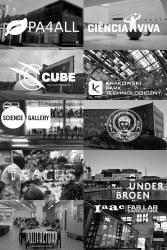Andrew Whittington-Davis
The role citizens should play in science policy is a large piece in the puzzle of science-society relations. More and earlier involvement from citizens and stakeholders in science and innovation has achieved increased currency within the Horizon 2020 research and innovation framework, and co-creation methodologies stand out as an important part of these concepts. SISCODE seeks to help these methodologies be researched further, paving the way for their adoption in the next Horizon Europe framework. Ten of our partner laboratories have already started using co-creation in their locality to tackle a broad range of local issues.
Science Gallery Dublin (Ireland): Ireland has one of the highest rates of mental ill-health in Europe, an affliction that hits the young the hardest. In response, Science Gallery Dublin is reaching out to youths through a variety of channels to better educate them about the issue.
Krakow Technology Park (Poland): The city of Krakow suffers from some of the worst air pollution in Europe, which presents a broad range of societal difficulties. By involving stakeholders in events and co-designed solutions, KTP hopes to improve this situation on various different levels.
Underbroen (Denmark): There is any number of ways for co-creation to improve city life. Underbroen focuses on the potential of multiple stakeholder engagement in devising and promoting sustainable solutions for circular recycling.
Fab Lab Barcelona (Spain): Urban ecosystems govern many societal issues in our cities; despite this, however, they are often not understood very well. Fab Lab Barcelona hopes to improve on this by having different stakeholders’ study urban ecosystems and design ways to work with them.
Cube (Netherlands): The European population is ageing rapidly, which presents a major challenge for the future. Technology may have solutions – but only if it is appropriately harnessed. Cube seeks to meet this challenge by co-designing “smart services” with stakeholders, making life easier for an ageing society.
Traces (France): Privacy and information control are controversial and increasingly pressing issues on the Internet. Traces’ open lab aims to co-design new ways of educating and communicating on these issues with multiple stakeholders and citizen input.
Ciencia Viva (Portugal): Marine leisure activities are important tools to raise awareness of relations between humans and the oceans; however, they are undeveloped in Portugal. Ciência Viva hopes to find concrete measures and products to engage more young people in sea sports in cooperation with marine stakeholders.
Thess AHALL (Greece): Loneliness and depression are major concerns in residential care and chronic disease patients. By consulting with patients and stakeholders, Thess-AHALL seeks to co-create better models of nursing homes, interventions and other measures to combat this threat.
PA4ALL (Serbia): Family farming is the most common farming model in Europe and of great importance to the continent; despite this, rural populations often have inferior access to information technology or are uninterested in its use. PA4ALL hopes to bridge this gap by introducing younger members of farming households to other stakeholders in technology and agriculture so as to develop common solutions.
Polifactory (Italy): This lab has teamed up with Fight The Stroke, a patient organisation for young stroke survivors to co-design solutions based on proprioception and aptic responses in order to improve and favour the movement of these young kids. Together they will look into the physical and motor needs of patients and explore them based on the principles of proprioception with specific attention to the translation of movement into sound stimuli (Bodysound).
These co-creation journeys are already in full flow. To find out more about these labs and their progress, you can find out more on our website.

